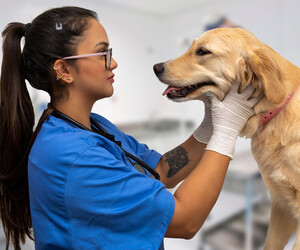What Establishes Animal Hospital Greensburg In Addition To Various Other Neighborhood Clinics
Expert Tips for Pet Dog Nutrition From a Veterinarian
Recognizing the nutritional demands of family pets is essential for their total health and durability. Vets recommend a well balanced diet plan that accommodates individual variables such as type, task, and age degree. Yet, with the wide variety of family pet food alternatives readily available, pet owners commonly locate themselves navigating a landscape rife with misinformation and misconceptions. As we discover essential ideas from vet specialists, it comes to be noticeable that correct nutrition is not merely about what is fed yet entails a much deeper understanding of each animal's one-of-a-kind needs. What vital understandings could change your approach to animal nutrition?
Recognizing Nutritional Requirements
Understanding the nutritional demands of family pets is fundamental to ensuring their general wellness and wellness. Similar to human beings, family pets need a balanced diet that gives necessary nutrients, including healthy proteins, fats, minerals, carbs, and vitamins. These nutrients play important functions in various bodily features, such as energy production, immune feedback, and tissue fixing.
They are made up of amino acids, some of which are crucial and need to be acquired from food. Carbs serve as a main power resource and can sustain gastrointestinal wellness when they consist of fiber.
Minerals and vitamins are essential for metabolic processes and keeping total health and wellness. Each pet may have unique requirements based upon variables such as age, breed, activity level, and wellness status. It is important to seek advice from a veterinarian to identify the certain dietary demands tailored to your animal's individual requirements, guaranteeing they get optimal nutrition throughout their life stages. Correct understanding and interest to these dietary parts can dramatically add to a pet dog's long life and lifestyle.

Selecting the Right Food
It is necessary to think about factors such as age, dimension, health and wellness, and breed condition when picking a pet food. Elderly pet dogs might benefit from foods created to deal with age-related concerns, such as joint wellness or weight administration.
When evaluating pet dog food alternatives, try to find products that meet the Organization of American Feed Control Officials (AAFCO) standards, which make certain that the food provides well balanced and complete nutrition. Components need to be high-grade, with genuine meat as the primary resource of protein. Prevent foods with excessive fillers, man-made ingredients, or byproducts, as these can interfere with the overall nutritional value.
Consulting with a veterinarian can give customized referrals based on your animal's specific requirements. Furthermore, transitioning between foods need to be done gradually to stay clear of intestinal distress. By taking these actions, pet dog owners can ensure that they are offering their furry friends with the finest possible nourishment for a healthy and balanced and satisfied life.
Typical Myths About Pet Dog Food
Disproving misconceptions bordering pet food is essential for ensuring optimum nutrition for our furry buddies. One common myth is that all grain-free diets transcend for pet dogs. Actually, grains can provide necessary nutrients and are not inherently dangerous. A well balanced diet can consist of grains, given they are not triggering any type of intolerances or allergic reactions.

Additionally, several animal owners think that "costs" or "natural" tags ensure better. These terms are frequently uncontrolled and do not necessarily indicate premium dietary value. It is vital to look at component lists and nutritional accounts instead.
Special Considerations for Different Types
When it comes to pet nutrition, special factors to consider need to be considered for different types, as each breed can have unique nutritional requirements and sensitivities. Large breeds such as Great Danes and Saint Bernards are prone to bone and joint problems and may profit from diet regimens developed to sustain joint health and wellness, frequently featuring active ingredients like glucosamine and omega fatty acids. Alternatively, little breeds like Chihuahuas might need greater calorie densities to meet their energy degrees, requiring formulations that are rich in nutrients yet lower in bulk.
Furthermore, particular breeds may be predisposed to certain health and wellness concerns, such as food allergies or sensitivities. Types like Labrador Retrievers might have a hard time with excessive weight, requiring careful part control and a well balanced diet to preserve a healthy weight. On the various other hand, breeds such as Dachshunds may be a lot go to the website more at risk to back concerns, motivating a requirement for diets that advertise spine wellness and weight management.
Ultimately, understanding these breed-specific dietary requirements is important for animal proprietors. Consulting with a vet can help in selecting the most suitable diet plan customized to an individual animal's type, health and wellness, and age status, making certain optimum nourishment and wellness.
Relevance of Normal Vet Examinations
Understanding the unique dietary requirements of different types is just one facet of liable family pet possession; routine veterinary check-ups play a vital duty in maintaining general health. These check-ups are crucial for very early detection of wellness problems, ensuring that any kind of possible issues are addressed before they come to be severe. Regular sees enable veterinarians to monitor your animal's weight, oral wellness, and essential indicators, which are important indicators of overall health.
Furthermore, regular check-ups make it possible for vets to provide customized dietary guidance based on your animal's specific wellness condition - Animal Hospital Greensburg. As pets age, their dietary requirements may change, and adjustments may be necessary to stop excessive weight or nutrient deficiencies. Preventative treatment, including inoculations and parasite control, is also a fundamental element of these sees, guarding your pet dog from different diseases
In enhancement to checkups, these visits use an excellent opportunity for pet owners to go over behavior changes or problems concerning their animal's eating behaviors. By focusing on normal veterinary examinations, family pet owners can make certain a much longer, much healthier life for their fuzzy companions, ultimately enhancing their quality of life.
Verdict
To conclude, making sure optimal animal nutrition needs a comprehensive understanding of specific dietary demands, proper food choice, and understanding of common myths. Special factors to consider for numerous types must be accounted for, and regular veterinary exams play a vital duty in checking health and wellness and nutritional modifications. Complying with AAFCO requirements and consulting with veterinarians before making dietary changes will improve the health of pet dogs, inevitably contributing to their long life and lifestyle.
With the wide variety of animal food options offered, pet proprietors commonly discover themselves browsing a landscape swarming with false information and myths. Each family pet might have special demands based on aspects such as age, type, task degree, and health and great post to read wellness status. It is vital to take into consideration aspects such as age, dimension, health, and breed condition when picking a pet food. Elderly animals might benefit from foods made to deal with age-related concerns, such as joint health and wellness or weight monitoring.
Comprehending the unique dietary needs of different breeds is just one aspect of accountable pet possession; regular veterinary exams play a crucial role in preserving overall Check Out Your URL health and wellness.